Abstract
Grief following perinatal loss is just as debilitating as that following the death of an older person and may not be completely resolved for years. The physician's role in assisting parents following perinatal loss is one of a sympathetic listener and compassionate informant, but each category of perinatal loss--miscarriage, stillbirth, neonatal death and sudden infant death syndrome--requires a somewhat different approach. To be of assistance, physicians must understand the normal process of grief and the differences between the reactions of mothers, fathers and siblings. The advent of liberal attitudes to family visiting in perinatal units has helped parents better understand perinatal illness, and appropriate management in the event of perinatal death can greatly benefit the family.
Full text
PDF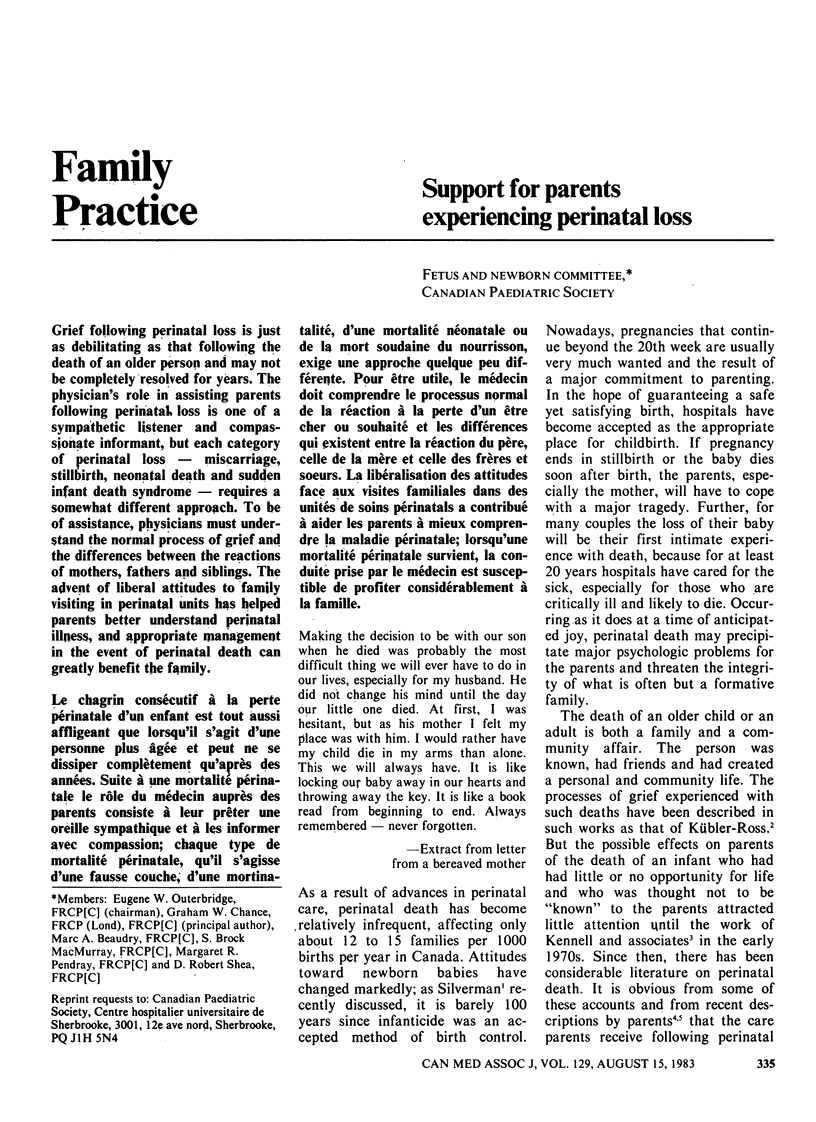
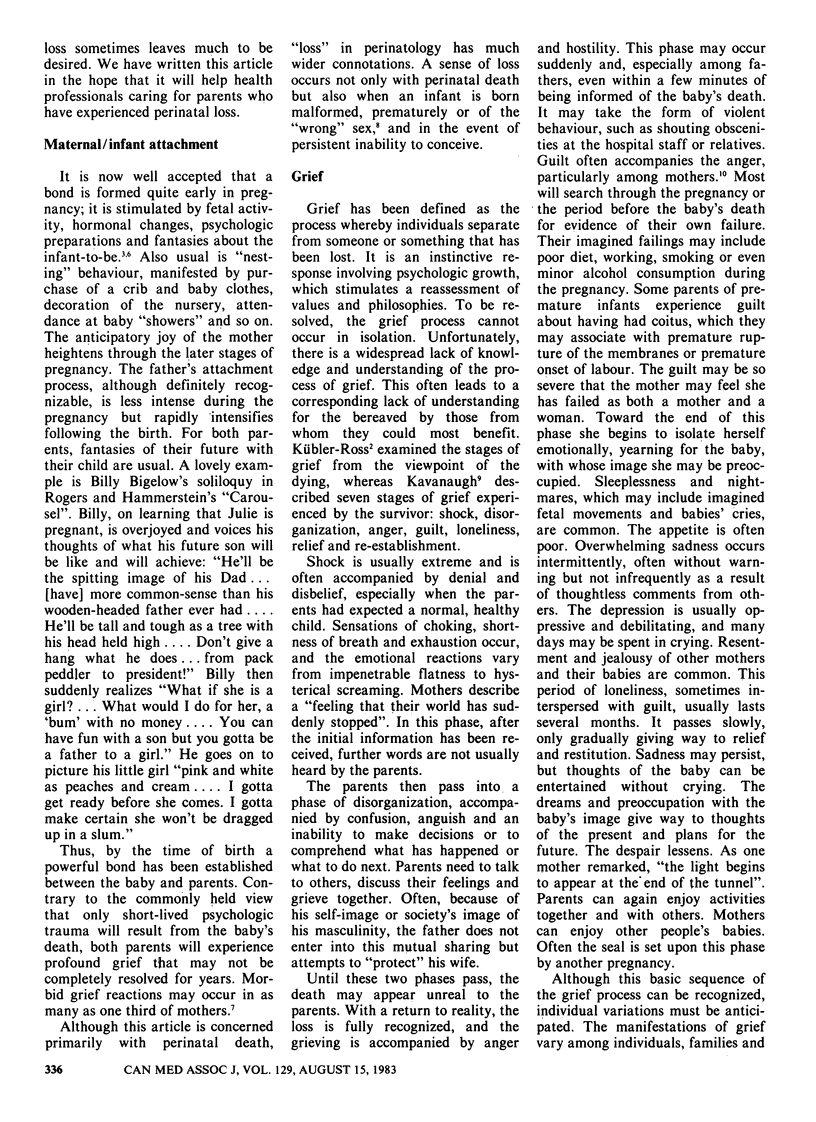
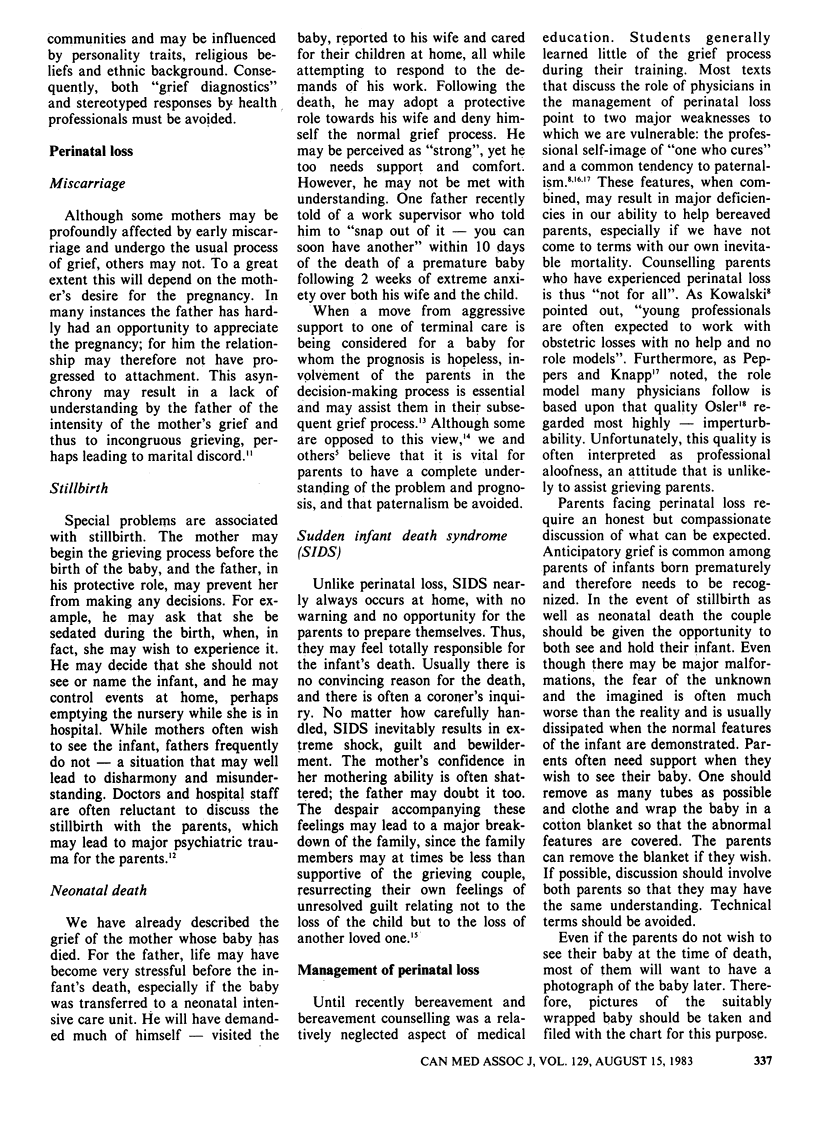
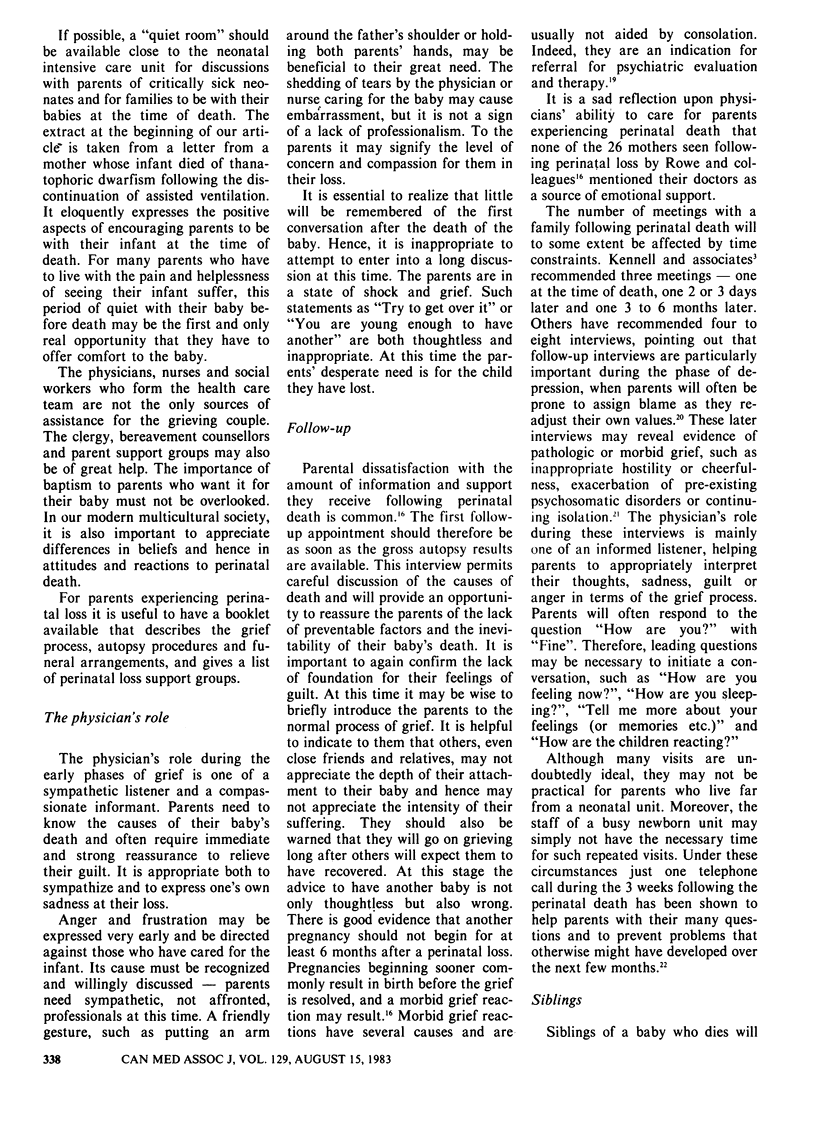
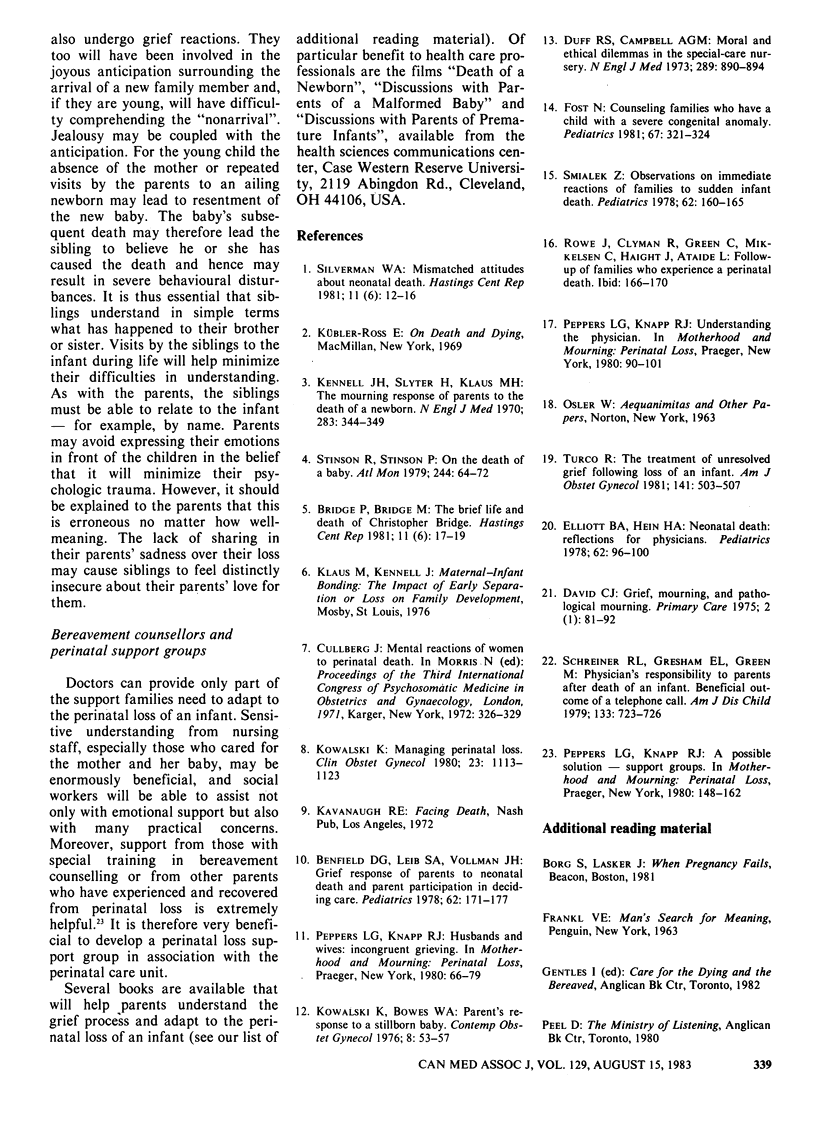
Selected References
These references are in PubMed. This may not be the complete list of references from this article.
- Benfield D. G., Leib S. A., Vollman J. H. Grief response of parents to neonatal death and parent participation in deciding care. Pediatrics. 1978 Aug;62(2):171–177. [PubMed] [Google Scholar]
- Bridge P., Bridge M. The brief life and death of Christopher Bridge. Hastings Cent Rep. 1981 Dec;11(6):17–19. [PubMed] [Google Scholar]
- David C. J. Grief, mourning, and pathological mourning. Prim Care. 1975 Mar;2(1):81–92. [PubMed] [Google Scholar]
- Duff R. S., Campbell A. G. Moral and ethical dilemmas in the special-care nursery. N Engl J Med. 1973 Oct 25;289(17):890–894. doi: 10.1056/NEJM197310252891705. [DOI] [PubMed] [Google Scholar]
- Elliott B. A., Hein H. A. Neonatal death: reflections for physicians. Pediatrics. 1978 Jul;62(1):96–100. [PubMed] [Google Scholar]
- Fost N. Counseling families who have a child with a severe congenital anomaly. Pediatrics. 1981 Mar;67(3):321–324. [PubMed] [Google Scholar]
- Kennell J. H., Slyter H., Klaus M. H. The mourning response of parents to the death of a newborn infant. N Engl J Med. 1970 Aug 13;283(7):344–349. doi: 10.1056/NEJM197008132830706. [DOI] [PubMed] [Google Scholar]
- Kowalski K. Managing perinatal loss. Clin Obstet Gynecol. 1980 Dec;23(4):1113–1123. doi: 10.1097/00003081-198012000-00015. [DOI] [PubMed] [Google Scholar]
- Schreiner R. L., Gresham E. L., Green M. Physician's responsibility to parents after death of an infant. Beneficial outcome of a telephone call. Am J Dis Child. 1979 Jul;133(7):723–726. doi: 10.1001/archpedi.1979.02130070059012. [DOI] [PubMed] [Google Scholar]
- Silverman W. A. Mismatched attitudes about neonatal death. Hastings Cent Rep. 1981 Dec;11(6):12–16. [PubMed] [Google Scholar]
- Smialek Z. Observations on immediate reactions of families to sudden infant death. Pediatrics. 1978 Aug;62(2):160–165. [PubMed] [Google Scholar]
- Turco R. The treatment of unresolved grief following loss of an infant. Am J Obstet Gynecol. 1981 Nov 1;141(5):503–507. doi: 10.1016/s0002-9378(15)33269-5. [DOI] [PubMed] [Google Scholar]


